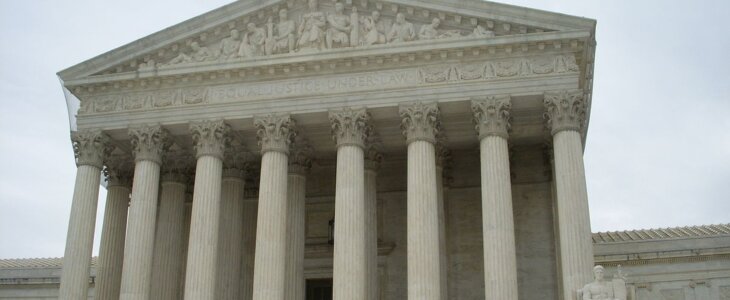Federal Criminal Defense Attorney Michael J. Petro filed a Petition for Writ of Certiorari on behalf of his client, Tangtang Zhao, on September 18, 2025. Mr. Zhao is a United States citizen who was indicted for selling blank COVID-19 vaccination cards to citizens who were scared that they would be imprisoned or not be able to buy food if they refused to get vaccinated.
The Washington Post pushed to indict Mr. Zhao. The DOJ immediately dispatched prosecutors from Washington, D.C., to Chicago to ensure that Mr. Zhao was convicted. After Mr. Zhao was indicted, the CDC changed the rules to make the blank COVID-19 vaccination cards “government property.” Mr. Zhao hopes and prays that the United States Supreme Court will act to end this wrongful prosecution.
Why Tangtang Zhao’s Supreme Court Petition Matters for § 641 “Government Property” Cases
When is something still “property of the United States” after it leaves federal hands? That deceptively simple question sits at the heart of Tangtang Zhao v. United States, a petition asking the U.S. Supreme Court to resolve a split over 18 U.S.C. § 641—the federal theft statute. The petition argues that juries get little guidance on what counts as “sufficient supervision and control” once federally purchased items are distributed to private entities.
The Legal Issue: A Confusing Patchwork
Across the country, courts apply different tests to decide whether property retains its federal character after it’s shipped to a non-government third party. The Sixth Circuit’s leading decision in Osborne offers a practical, factor-based checklist—looking to things like reversion rights, audit and recordkeeping requirements, regulatory overlays, and termination or claw-back authority. Other circuits, including the Seventh, often use looser standards, sometimes treating a single program restriction as enough without the rigorous safeguards Osborne demands. The result? Defendants and juries face a patchwork of rules for the same statute.
The Case: COVID Vaccine Cards and “Control”
Mr. Zhao, a Chicago pharmacist, was convicted under § 641 for selling blank CDC COVID-19 vaccination cards that had been delivered to Walgreens—a private, non-government provider. At trial, the government argued the cards remained federal property; the defense countered that, once distributed, they weren’t. Jurors asked the court to define “sufficient supervision and control.” The court declined, telling them to decide for themselves. The record also reflected there were no barcodes, inventory rules, return requirements, or audits of blank cards during the period at issue—and the CDC’s explicit ownership claim came later. The Seventh Circuit affirmed, highlighting the very uncertainty the petition asks the Supreme Court to fix.
Why It Matters Beyond This Case
Section 641 affects numerous programs where the federal government purchases tangible goods and routes them through private channels—such as healthcare, disaster relief, education, and more. Without a uniform, factor-based instruction, jurors are left guessing and defendants lack fair notice. The petition urges the Court to adopt clear, objective, ex-ante indicators of retained federal control (think: reversion/recall rights, tracking and audits, mandated approvals, use limits, and termination/claw-back authority) so everyone plays by the same rules.
Bottom Line
Zhao is a clean vehicle to settle the standard for § 641. A Supreme Court ruling could restore predictability, cabin overbroad prosecutions, and ensure juries receive practical, uniform guidance on when property remains “of the United States.”
Questions about § 641 charges or federal property cases? Contact Michael J. Petro, 110 North 11th Street, Suite 202, Tampa, Florida 33602 | (813) 499-9111 | attorney@mjpetro.com.
